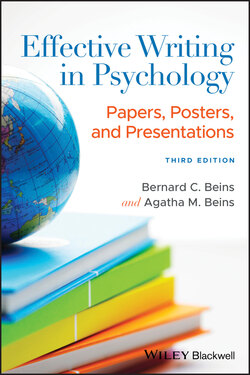Читать книгу Effective Writing in Psychology - Bernard C. Beins - Страница 17
Making a Credible Argument
ОглавлениеThe difference between scientific writing and other writing has to do with the nature of how psychologists attempt to persuade readers. In everyday life, if you want you to change somebody's mind about something, there are several ways of doing it. One is to appeal to authority. That is, by quoting an expert (i.e., an authority), you can often convince people to believe you. After all, experts know more than others in their field of expertise. Unfortunately, experts can be wrong.
You can also appeal to what “everybody” knows is true; some things are so obvious, they must be true. Unfortunately (again), there are some things that everybody knows to be true that simply aren't true.
You can also appeal to others' emotions. Politicians and advertisers do this all the time. Unfortunately (again), conclusions based on emotional appeals can make a person feel good about a decision that, ultimately, proves to be troublesome. Furthermore, such conclusions are often not very stable (Petty & Cacioppo, 1986).
We should not simply believe the experts (even though they are probably right more than they are wrong in their areas of expertise). They should have to convince us with logical arguments. We should not simply trust our senses (even though a lot of what we feel to be true has some validity). We should not simply believe in what makes us feel good or reject what makes us feel bad; it should have logical validity.
When trying to convince your reader of your arguments, you should engage the reader in critical evaluation of your ideas. Research has revealed that persuasion based on logic and on attention to important details leads to greater and longer‐term acceptance of an argument. This is the type of persuasion that you should strive for in your writing.
